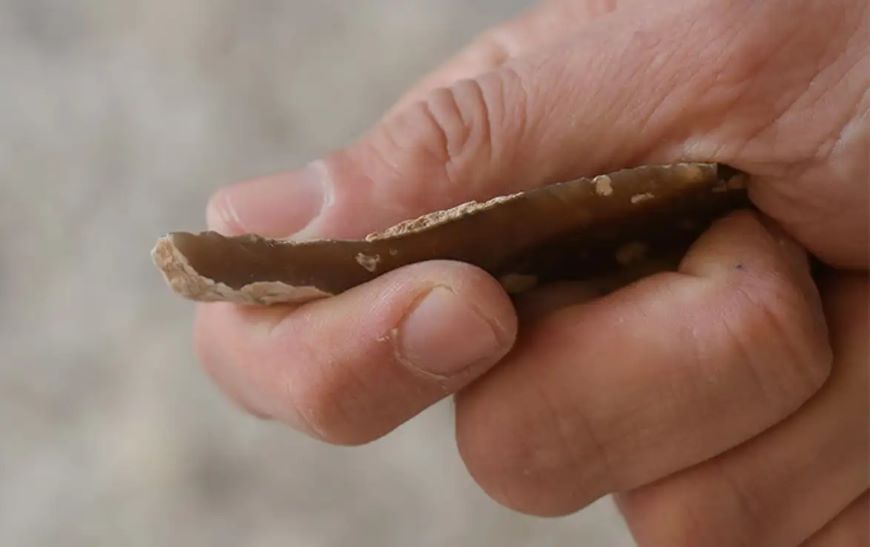Early humans used fire 300,000 years ago to make better tools
Production of stone artefacts using pyro-technology is known from the Middle and Upper Paleolithic of Europe and the Levant, and the Middle Stone Age in Africa. However, determination of temperatures to which flint artefacts were exposed was impeded by the chemical and structural variability of flint. Until now.
More to read:
A pre-Sapiens hominin species used meaningful symbols over 200,000 ago
Research led by archaeologist Filipe Natalio from the Weizmann Institute of Science in Israel indicates that the controlled use of fires was a prehistoric practice to craft customized stone tools and it was widespread 300,000 years ago.
This discovery highlights the cognitive and cultural sophistication of human species from that era.

A stone tool made of flint. Credit: Gizmodo
Baked flint tools unearthed at Qesem Cave in central Israel demonstrate that early hominins could manage fire temperatures, uncovering a vital survival skill.
The authors of the study, which was published in Nature Human Behavior, say that heating flint at low temperatures allowed for better control during knapping, enabling toolmakers to create tools for specific cutting purposes.
“I think that hominins could not survive long in the cold climate of Eurasia without hot food and a warm fire, but some researchers still argue that controlled and habitual use of fire came quite late,” explained Silje Evjenth Bentsen, an anthropologist at the University of Bergen not involved in the study.
“If hominins in Qesem Cave were using fire 300,000 years ago as a technology and as part of their tool production strategies, it is a sign of advanced use of fire. And as such, it could also help us understand how and when hominins controlled fire and used it casually in their everyday life,” he added.
More to read:
Prehistoric arrow flints challenge timeline of first Neanderthal - Homo sapiens encounters
They most likely figured out what kinds of materials enhance fire in terms of temperature and duration, obtaining tools of different durability and knowledge about the benefits of fires. Better quality tools ultimately played a substantial role in evolution of early humans.
***
NewsCafe relies in its reporting on research papers that need to be cracked down to average understanding. Some even need to be paid for. Help us pay for science reports to get more interesting stories. Use PayPal: office[at]rudeana.com or paypal.me/newscafeeu.







